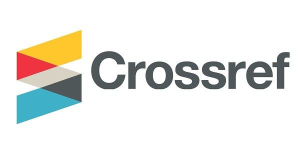Exploring Indonesian Primary School Teachers’ Emotional Intelligence: Comparisons by Gender and Teaching Experience
DOI:
https://doi.org/10.31436/ijes.v12i1.517Keywords:
Emotional intelligence, Goleman’s scale, Indonesian primary school teachers, gender differences, Wilcoxon’s signed-ranked testAbstract
This study examined the level of emotional intelligence among private primary school teachers in selected Indonesian schools and differences in teachers’ EI by gender and teaching experience. Using a census survey, the study obtained emotional intelligence data from 107 Indonesian teachers—65 female and 42 male—from 19 private primary schools in Surabaya. The survey was administered using a Google Form containing 25 items on emotional intelligence adapted from Goleman (2011). The emotional intelligence items were divided into five subscales measuring self-awareness (four items), self-regulation (four items), motivation (six items), empathy (five items), and relationship management (six items). The EI data were analyzed using descriptive statistics to establish teachers’ EI levels and the Wilcoxon signed-rank test to determine teacher differences in EI by gender and teaching experience. The results indicated that private primary school teachers in Surabaya reported high levels of EI in all five of its dimensions. Both male and female teachers demonstrated a consistent distribution of emotional intelligence scores and no statistically significant differences by gender and teaching experience were found among the sample in terms of emotional intelligence.
Metrics
Downloads
Published
How to Cite
Issue
Section
License
Copyright (c) 2024 IIUM Press, International Islamic University Malaysia

This work is licensed under a Creative Commons Attribution 4.0 International License.
The Journal will own copyright to all published works and have the right of first publication, both in print and online, unless other arrangements are made with the Editors in advance. It is the author`s responsibility to ensure that where copyright materials are included within an article the permission of the copyright holder has been obtained beforehand.























